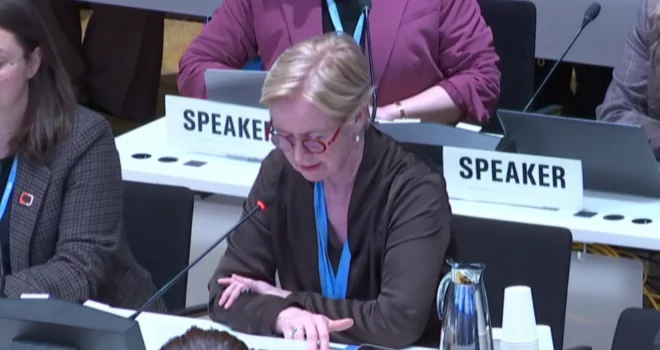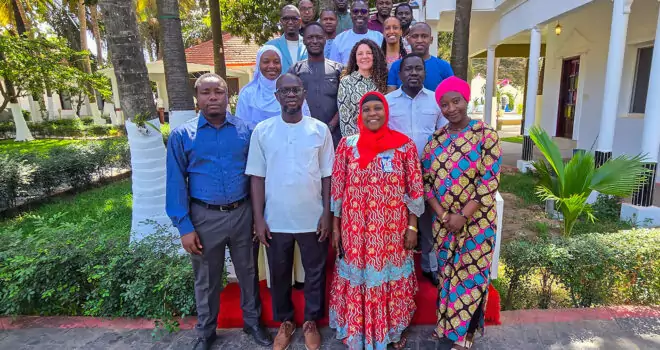Marking World Hypertension Day on May 17, the World Heart Federation is taking stock of its recent initiatives to accelerate progress in the management and prevention of raised blood pressure and to elevate this significant public health issue on the global health agenda. Efforts include translating WHF’s global roadmap on hypertension into national contexts through roundtables, and capitalising on the advocacy opportunities at the 71st World Health Assembly.
Hypertension is the world’s leading preventable cause of death
The numbers behind hypertension are striking. The World Health Organization estimates that approximately 40 percent of people worldwide have raised blood pressure. Regionally, Africa stands out as the continent with the highest prevalence: 46 percent of adults aged 25 and older are suffering from hypertension. These statistics matter because hypertension impacts public health and economies alike. Managing the condition and its complications entails direct costs for health systems and leads to substantial losses in productivity as a result of disability and premature mortality. Hypertension is also a significant risk factor for stroke, heart failure, coronary artery disease, diabetes and kidney disease. Not surprisingly, 55 percent of the 17 million annual deaths related to cardiovascular diseases (CVD) are linked to complications from raised blood pressure. However, there is hope. Hypertension is one of the most cost-effective and impactful conditions to treat. For example, lowering blood pressure has been linked to a 35–40 percent reduction in the risk of stroke and to a 20–25 percent reduction in the risk of myocardial infarction and heart failure.
A Roadmap for preventing and managing raised blood pressure
With only 13.2 percent of the global population hypertension-controlled, what can we do to prevent and tackle raised blood pressure? In 2015, WHF developed a Roadmap for Reducing Cardiovascular Mortality through Prevention and Management of Raised Blood Pressure to provide evidence-based solutions to overcome roadblocks in the treatment of hypertension at health systems-, physicians- and patient-levels. The Roadmap proposes a comprehensive health system approach to tackling hypertension, which includes physical and human resources, healthcare delivery and recipients, financing and governance, and information systems. In particular, it emphasizes the role of opportunistic screening, effective drug treatments and education for people with raised blood pressure, and recommends thinking innovatively about e-health solutions, task-sharing, and communication and education campaigns in efforts to raise awareness about, prevent and manage hypertension.
Translating the World Heart Federation’s Roadmap in national contexts: the case of Kenya
WHF works closely with its members to translate and adapt the global Roadmaps to country-specific contexts by holding CVD roundtables. On the 21st of March 2018, together with our member the Kenya Cardiac Society, we convened speakers and participants from the Ministry of Health and country health directorates, primary health care, civil society, the private sector, academia and faith based organizations in a roundtable entitled Accelerating Solutions to Hypertension Management. Hypertension is an issue of growing concern in Kenya. As Prof Ogola, PASCAR Secretary General, said at the roundtable: “The prevalence of hypertension burden is increasing in Kenya, with one inhabitant out of four affected. An estimated 75 percent of Kenyans who live with hypertension do not know they suffer from it, and only four percent are controlled.”
Drawing on the WHF and PASCAR Roadmaps on hypertension, the participants emphasized putting people at the centre of the prevention and management of hypertension, involving communities in collecting and getting feedback to data, exploring public-private partnerships, and rethinking financing for healthcare.
These points were translated into a Call to Action to:
- Empower people with living with non-communicable diseases (NCDs)
- Establish a national registry for NCDs
- Create an enabling environment for task sharing in CVD management
- Tax unhealthy commodities and allocate those revenues to healthcare for people living with NCDs
The roundtable was part of Building Solutions to Patient Challenges in Non-Communicable Diseases, a stakeholder collaboration event involving the World Heart Federation, the NCD Alliance, Program for Appropriate Technology in Health (PATH) and Access Accelerated that aimed to drive action and develop sustainable solutions around critical issues related to NCD prevention and treatment in Kenya.
Making the case for hypertension in universal health coverage at the 71st World Health Assembly
We will be reflecting some of the learnings from Kenya in our work at the 71st World Health Assembly. On the 22nd of May, the World Heart Federation and Global Coalition for Circulatory Health are holding a side event to raise awareness about hypertension in universal health coverage (UHC). The event is entitled Positioning Circulatory Health in Universal Health Coverage. The case for Hypertension and will be held at the Intercontinental Hotel in Geneva between 12h00 and 13h45.
Moderated by Dr Richard Horton (Editor-in-Chief, The Lancet), the event panel includes Dr Tom Frieden (President & CEO, Resolve to Save Lives), Dr Etienne Krug (Director, WHO Director, Department for Management of Non-communicable Diseases, Disability, Violence and Injury Prevention), Ms Rita Melifonwu (Ashoka Fellow Founder Stroke Action UK and Nigeria) and Mr Nicolas Diserens (patient speaker, Switzerland).
The panel discussions will touch on the challenges of and opportunities in preventing and managing hypertension in the context of countries’ quest for universal health coverage and will consider the realities of resource-constrained and divided health systems. These topics are important as the global health community prepares for the 3rd United Nations High Level Meeting on the prevention and control of non-communicable diseases (UN HLM on NCDs) in September in New York.
Preventing and controlling hypertension can only bring significant returns on investment in terms of lives saved and healthcare resources freed. Therefore, we encourage governments, professional bodies, civil society, international and regional organizations to commit to turning hypertension from the world’s leading preventable cause of death into the world’s most successfully managed and controlled condition.
References


